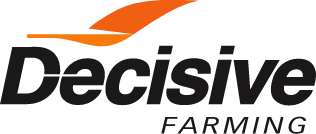From ox and plow to the advent of autonomous tractors, farmers have always sought new and more efficient ways to grow crops. The demand for high-quality, protein and nutrient-rich food increases annually as the global population is on pace to reach 9 billion by 2050. The explosive growth of plant-based protein food products is testament to the nearly insatiable demand for healthy calories. Consumers and food manufacturers are also seeking greater transparency and traceability from the agriculture industry, literally from the box of cereal on the shelf right back to the farmer who grew the contents – what, where, when and how.
Juxtaposed against swelling food demand is the reality that available productive agricultural land remains static or decreases annually. Farmers are under immense pressure to find production solutions that are both economically and environmentally sustainable. The strategic employment of data collected from the field and managed through precision farm applications is a rapidly growing solution that is paying off for both farmers and foodies alike.
From corn to soybeans, potatoes to strawberries, soil health and soil fertility management are crucial in the production of nutritious and high-yielding crops. In order to reach maximum potential, a maturing plant needs access to as many as 17 elements at exactly the right time during its growth cycle – from carbon, hydrogen and oxygen, to nitrogen, phosphorous and potassium, as well as many micronutrients such as boron, copper and iron. If the plant suffers nutrient deficiencies during its early emergence, the yield and overall nutritional quality of the crop will be adversely impacted.
Smarter crop management is getting a boost from precision agriculture platforms that are making use of big data, artificial intelligence (AI) and predictive analytics to offer farmers highly customized plant fertility solutions based on hyper-local growing conditions. This shift from “one size fits all” farming is being led by precision tech entrepreneurs like Remi Schmaltz, founder and CEO of Decisive Farming, who says “sustainable agriculture starts with managing social, environmental, and financial aspects equally and in balance.”
“We’re supporting this approach by offering integrated farm management services to farms that increase crop production, technology ease-of-use and help manage costs, resulting in a typical increase in yields and profits by as much as 10 per cent,” explains Schmaltz. “The impact is also being seen in improved environmental performance by better soil nutrient management and reduced CO2 emissions. It’s a win-win for global food production and the individual farmer’s profitability.”
Emerging technologies like soil sensors, satellite infrared imagery, and GPS-guided equipment are being coupled with crop industry best-practices like the 4R Nutrient Stewardship program. The 4R approach provides a framework to achieve increased production, enhanced environmental protection, and improved sustainability by incorporating the right nutrient source applied at the right rate, at the right time, and in the right place.
The opportunity to trial and demo these emerging technologies and best practices has been instrumental in helping to prove the return on investment from building a digital farm. Olds College’s Smart Farm, launched in Alberta in 2018, is “using the technologies and data gathered to make evidence-based decisions to improve productivity, profitability and sustainability,” according to the College. The Smart Farm has proven to be a tremendous success to date.
Schmaltz says we are entering a new golden age in farm productivity that is helping boost global yields and also allow farmers to “extend their capacity, automate routine tasks and give them more time to do things computers can’t. It’s not to replace the personalized care farmers put into creating resources essential to life, nor should technology determine the root cause of a problem in the field. Farmers can now, with the help of advancements in agriculture, deliver the best product with more nutrients to the growing population.”
Let’s get to work. Together. Contact your local Decisive Farming representative today


